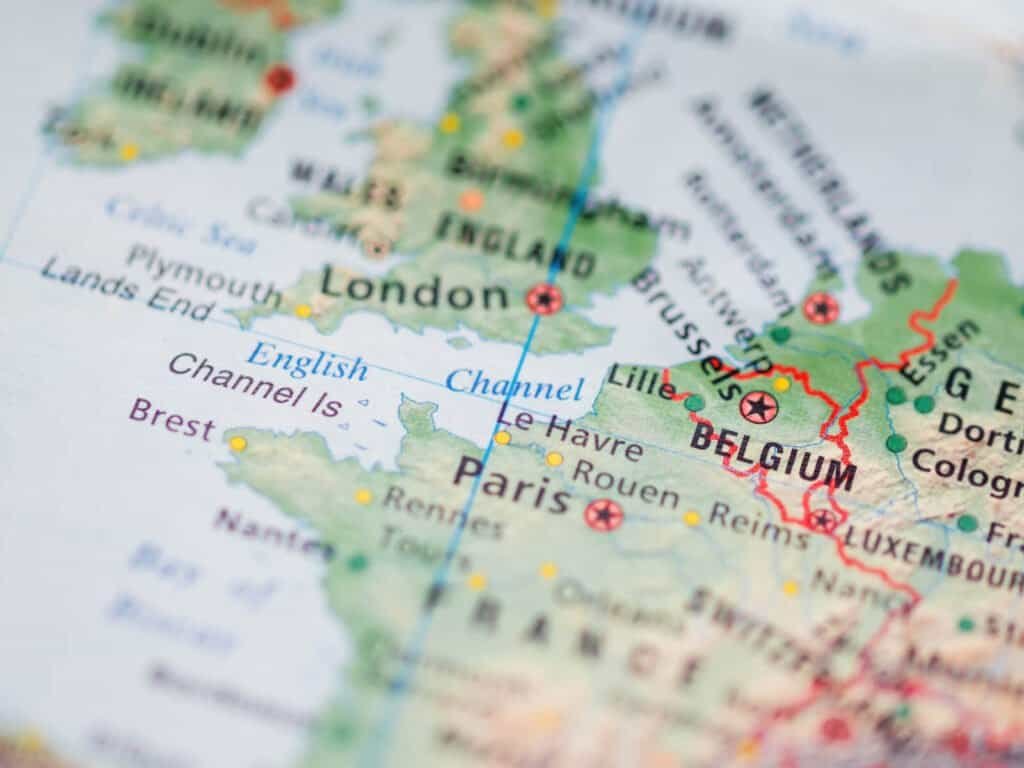Belgium, a small country in Western Europe, is known for its rich history, stunning architecture, and delicious chocolates. But did you know that Belgium is also a linguistically diverse nation? In this article, we will explore the official languages of Belgium and shed light on what language is spoken in each region.
- Dutch (Flemish)
- French
- German
- Conclusion
- People also ask
- Q: What are the official languages of Belgium?
- Q: Which language is most commonly spoken in Brussels?
- Q: Do people in Belgium also speak English?
- Q: How many languages are spoken in Belgium?
- Q: Can I learn Dutch in Belgium?
- Q: Is Belgium a bilingual country?
- Q: What are the primary language areas in Belgium?
- Q: Are there any minority languages spoken in Belgium?
- Q: What is the dominant language in Belgium?
- Q: How many inhabitants of Belgium speak French?
Belgium has three official languages: Dutch, French, and German. Each language is predominantly spoken in different parts of the country, reflecting the cultural diversity and historical influences that have shaped Belgium’s linguistic landscape.

About 60% of the people in Belgium speak Dutch, also known as Vlaams or Flemish. It is primarily used in the northern region of Flanders. French, spoken by approximately 40% of Belgians, is predominant in the southern Wallonia region and the capital city, Brussels. In the country’s eastern region, a small minority of people speak German, the third official language.
In addition to the official languages, Belgium also boasts a variety of regional languages and dialects. For instance, in the French-speaking part of the country, you may come across dialects such as Walloon, Picard, Champenois, and Lorrain. In the Dutch-speaking region, dialects like Limburgish and Luxembourgish are prevalent. These regional languages and dialects add further nuance and charm to Belgium’s linguistic tapestry.
It is worth noting that while there are linguistic divisions in Belgium, most Belgians are multilingual and have a good understanding of multiple languages. This linguistic diversity not only reflects the country’s history and cultural heritage but also fosters an inclusive and multicultural society.
Dutch (Flemish)
The Dutch-speaking community in Belgium, also known as Flemish, comprises about 60% of the population. The language spoken by this community, often referred to as Belgian-Dutch, is largely identical to Standard Dutch but may have some differences in pronunciation, vocabulary, and idioms. The Flemish dialects include Brabantian, West Flemish, East Flemish, and Limburgish. While there are variations within the Flemish dialects, speakers of Dutch should have no trouble communicating in Flanders.

Differences between Flemish and Standard Dutch
While Flemish and Standard Dutch share many similarities, there are a few key differences to be aware of:
- 1. Pronunciation: Flemish pronunciation may vary slightly from Standard Dutch. For example, the ‘g’ sound in Flemish is often softer and resembles a ‘h’ sound. Additionally, certain vowel sounds may differ slightly between the two variants.
- 2. Vocabulary: Flemish and Standard Dutch use slightly different vocabulary for certain words and expressions. Some words may have different regional variations or colloquialisms.
- 3. Idioms: Idiomatic expressions can also differ between Flemish and Standard Dutch. While many idioms are shared, there are also unique phrases and sayings specific to the Flemish language.
Despite these differences, Flemish-speaking individuals and Dutch speakers from the Netherlands can generally understand each other without major issues. The overall structure and grammar of the language remain the same between Flemish and Standard Dutch.
“Flemish, a variant of Dutch spoken in Belgium, shares many similarities with Standard Dutch, making it easy for Dutch speakers to communicate in Flanders.”
| Flemish | Standard Dutch |
|---|---|
| Appelsien | Sinaasappel |
| Ajuin | Ui |
| Zetel | Bank |
| Fiets | Fiets |
| Wafel | Wafel |
Keep in mind that these variations in vocabulary are minor and knowing Standard Dutch will still enable you to communicate effectively in Flanders. However, using the local terminology can help you connect with the Flemish community and showcase your appreciation for their language and culture.
French
The French-speaking community in Belgium plays a significant role in the country’s linguistic landscape, representing approximately 40% of the population. French is predominantly spoken in the southern Wallonia region and the capital, Brussels. The French language has a long history in Belgium, dating back to the Middle Ages.
While there are similarities between the standard French spoken in Belgium and the French spoken in France, there may also be differences in pronunciation and vocabulary. Overall, French-speaking Belgians can generally understand and communicate with native French speakers from France without significant difficulties.
However, it’s important to note that Belgian French dialects, such as Walloon, Picard, Lorrain, and Champenois, may have distinct grammar and vocabulary variations compared to standard French. These regional dialects add diversity to the French language spoken in Belgium and offer insights into the cultural heritage of different communities.
“Language is the road map of a culture. It tells you where its people come from and where they are going.”― Rita Mae Brown
Differences between French in Belgium and France
While the differences between Belgian French and Metropolitan French may not be as pronounced as the differences between different dialects within Belgium, there are still some notable variations.
Vocabulary
Like any language that has evolved as a result of its particular cultural context, Belgian French has acquired unique expressions and vocabulary. Some words may have different meanings or usage compared to standard French, reflecting the Belgian cultural perspective. For example, the word for ‘potato’ in Belgium is ‘pomme de terre,’ while in France, it’s commonly referred to as ‘patate.’

Pronunciation
While the overall pronunciation of Belgian French is similar to standard French, there may be some regional differences in accent and phonetics. These variations can be subtle and generally do not hinder communication between French-speaking Belgians and native French speakers.
| Aspect | Belgian French | Metropolitan French |
|---|---|---|
| Vocabulary | Distinct expressions and vocabulary influenced by Belgian culture | Standard French language and expressions used in France |
| Pronunciation | Similar to standard French with some regional variations in accent and phonetics | Standard French pronunciation |
Despite these differences, the French-speaking community in Belgium maintains strong connections with French culture and literature, and many Belgian authors and poets contribute to the French literary scene.
In conclusion, the French language holds a significant place in Belgium, with the French-speaking community contributing to the country’s linguistic and cultural diversity. While there may be differences in vocabulary and pronunciation, the language remains a vital means of communication and cultural expression for both French-speaking Belgians and the broader French-speaking world.

German
The German-speaking community in Belgium, although small in numbers, plays an important role in the country’s linguistic diversity. Comprising only about 1% of the population, this community is primarily concentrated in the eastern regions of Liege. Due to the fact that these regions were part of Belgium after World War I, the German that this community speaks is similar to standard German.
Belgian German, having had less time to evolve independently compared to other languages spoken in Belgium, maintains a strong resemblance to standard German. This similarity in language facilitates communication between German-speaking Belgians and speakers of standard German, enhancing cultural exchange and cooperation.
The German-speaking community in Belgium contributes to the rich tapestry of languages within the country and provides a unique perspective on German culture within a Belgian context. Despite their small numbers, the German speakers in Belgium add to the vibrant linguistic landscape and exemplify the multiculturalism present throughout the nation.
It is important to recognize and appreciate the presence of the German-speaking community in Belgium, as it reflects the country’s commitment to diversity and inclusivity. The similarities between Belgian German and standard German enable cross-cultural understanding and foster connections between the German-speaking communities in Belgium and beyond.

Conclusion
Belgium’s multilingualism and linguistic diversity are a testament to its rich cultural tapestry. With three official languages – Dutch, French, and German – Belgium’s linguistic landscape reflects its complex historical and geographic position between Germanic and Romance-speaking Europe. This unique blend of languages contributes to the country’s cultural diversity, making Belgium a fascinating destination for visitors.
People also ask
Q: What are the official languages of Belgium?
A: The official languages of Belgium are Dutch, French, and German.
Q: Which language is most commonly spoken in Brussels?
A: Both French and Dutch are widely spoken in Brussels, as it is officially bilingual.
Q: Do people in Belgium also speak English?
A: Yes, many people in Belgium, especially in urban areas, are proficient in English in addition to the official languages.
Q: How many languages are spoken in Belgium?
A: Belgium is known for its linguistic diversity, with three official languages and several minority languages spoken across the country.
Q: Can I learn Dutch in Belgium?
A: Yes, there are resources and language schools available for those interested in learning Dutch in Belgium.
Q: Is Belgium a bilingual country?
A: Yes, Belgium is officially recognized as a bilingual country with Dutch and French as its two primary languages.
Q: What are the primary language areas in Belgium?
A: The primary language areas in Belgium consist of the Dutch-speaking region of Flanders, the French-speaking region of Wallonia, and the bilingual Brussels-Capital region.
Q: Are there any minority languages spoken in Belgium?
A: Yes, Belgium is also home to minority languages such as German, spoken in the German-speaking community of Belgium.
Q: What is the dominant language in Belgium?
A: Dutch is the dominant language in the northern region of Flanders, while French is the predominant language in the southern region of Wallonia. German is primarily spoken in a small community within the country.
Q: How many inhabitants of Belgium speak French?
A: French is the second most spoken language in Belgium, particularly prevalent in the French-speaking community of the country.